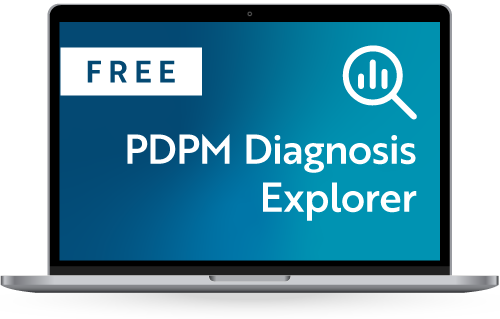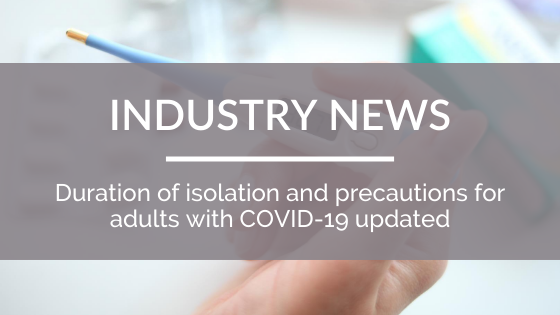The CDC released updated findings and recommendations regarding the Duration of Isolation and Precautions for Adults with COVID-19 on July 22, 2020. “Accumulating evidence supports ending isolation and precautions for persons with COVID-19 using a symptom-based strategy. This update incorporates recent evidence to inform the duration of isolation and precautions recommended to prevent transmission of SARS-CoV-2 to others, while limiting unnecessary prolonged isolation and unnecessary use of laboratory testing resources.”
Recommendations:
- Duration of isolation and precautions
- For most persons with COVID-19 illness, isolation and precautions can generally be discontinued 10 days after symptom onset1 and resolution of fever for at least 24 hours, without the use of fever-reducing medications, and with improvement of other symptoms.
- A limited number of persons with severe illness may produce replication-competent virus beyond 10 days that may warrant extending duration of isolation and precautions for up to 20 days after symptom onset; consider consultation with infection control experts.
- For persons who never develop symptoms, isolation and other precautions can be discontinued 10 days after the date of their first positive RT-PCR test for SARS-CoV-2 RNA.
- Role of PCR testing2 to discontinue isolation or precautions
- For persons who are severely immunocompromised, a test-based strategy could be considered in consultation with infectious diseases experts.
- For all others, a test-based strategy is no longer recommended except to discontinue isolation or precautions earlier than would occur under the strategy outlined in Part 1, above.
- Role of PCR testing2 after discontinuation of isolation or precautions
- For persons previously diagnosed with symptomatic COVID-19 who remain asymptomatic after recovery, retesting is not recommended within 3 months after the date of symptom onset for the initial COVID-19 infection. In addition, quarantine is not recommended in the event of close contact with an infected person.
- For persons who develop new symptoms consistent with COVID-19 during the 3 months after the date of initial symptom onset, if an alternative etiology cannot be identified by a provider, then the person may warrant retesting; consultation with infectious disease or infection control experts is recommended. Isolation may be considered during this evaluation based on consultation with an infection control expert, especially in the event symptoms develop within 14 days after close contact with an infected person.
- For persons who never developed symptoms, the date of first positive RT-PCR test for SARS-CoV-2 RNA should be used in place of the date of symptom onset.
- Role of serologic testing
- Serologic testing should not be used to establish the presence or absence of SARS-CoV-2 infection or reinfection.
[1] Symptom onset is defined as the date on which symptoms first began, including non-respiratory symptoms.
[2] PCR testing is defined as the use of an RT-PCR assay to detect the presence of SARS-CoV-2 RNA..
Want to keep up with the changing COVID-19 situation in skilled nursing?




